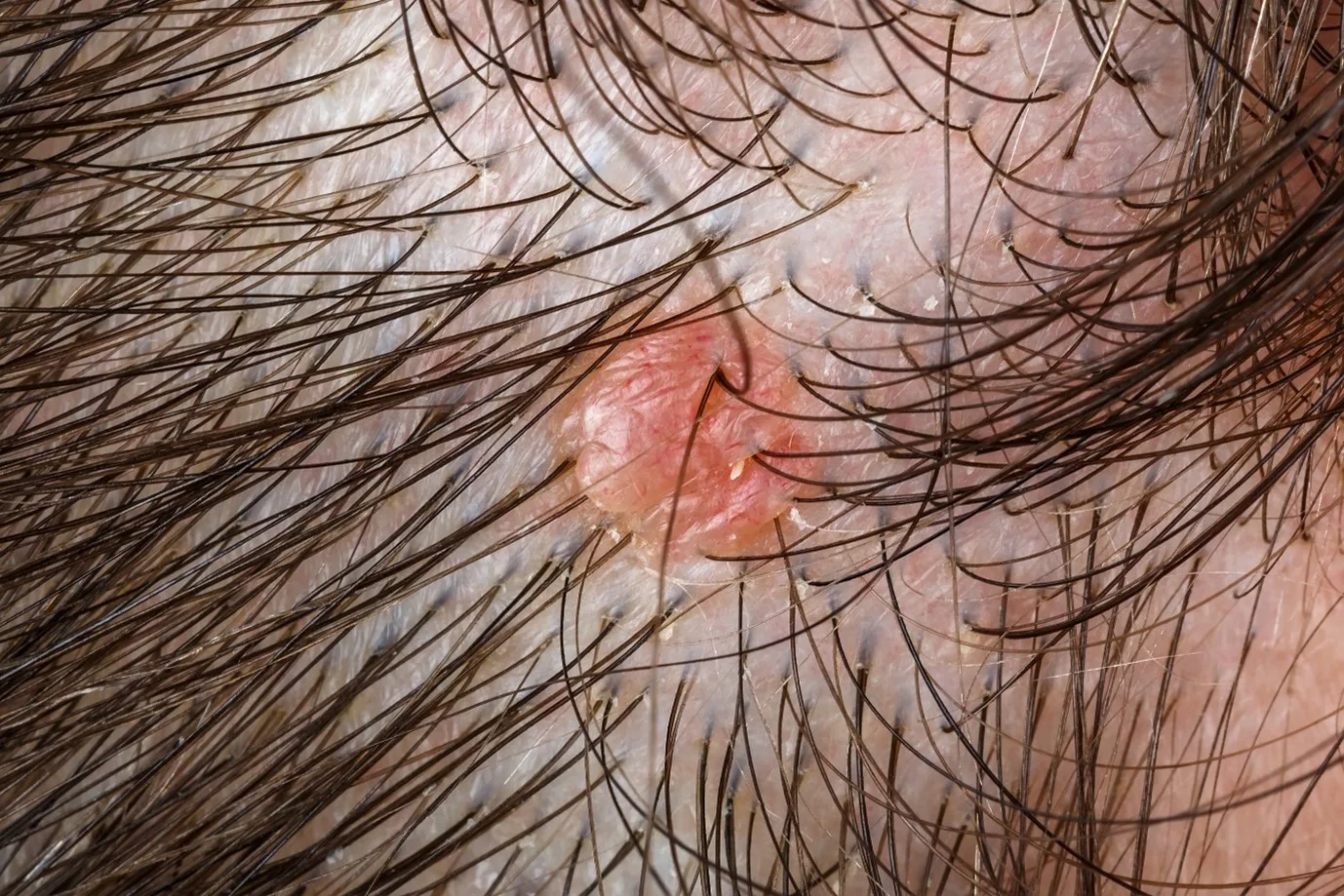UNDERSTANDING SCALP BUMPS AND ITS CAUSES
Understand what those bumps on your scalp are and what you can do

In the cartoons, it’s funny when a character hits his head and sees a large bump coming out. But if that same bump was because of a scalp infection, that cartoon quickly stops being humorous.
Finding bumps or pimples on scalp is not a welcome sight for anyone. Bumps are protrusions on your skin, which could even be pimple like bumps on scalp that hurt. These can take on different shapes and sizes, based on the underlying cause. The common signs are:
- Spots
- Patches
- Raised and round points
- Scales
- Bumps that ooze
These bumps on scalp are usually associated with stinging, flaking, burning, pain, inflammation, and an itchy scalp . You need to understand the different causes of these hard bumps on scalp to determine the correct course of treatment.
What is the cause of these bumps or pimples on scalp?
-
Allergic reactions-
Also known as Contact Dermatitis, this is the most common reason for finding pimples on head. When your skin comes in contact with an allergen or irritant, your body reacts in the form of scalp breakouts. Creams, shampoos, gels, perfumes, all contain chemicals that your body might be sensitive towards. This is usually associated with an itchy scalp.
Treatment - You should identify the product that triggered the reaction and stop using it immediately. Visit a doctor to get anti-allergy medication which can be in the form of pills or creams.
-
Dandruff-
Another common reason for finding bumps and pimples on head is dandruff. This affects almost 1 in 2 people across the world and is caused by a naturally occurring fungus known as Malassezia Globosa. This fungus breaks down any oil build-up on your scalp and creates oleic acid. If your body reacts to this fatty acid, it leads to red bumps on scalp, itching, and flaking.
Treatment - To take care of dandruff, you need to attack the fungus or the oil build-up. There are various pimples on scalp home remedies that might be effective. You can also use shampoos like Head and Shoulders Neem , which gives you upto 100% protection from dandruff causing germs.
-
Scalp acne-
When your scalp has increased oil production, there is a tendency for this oil to attract dirt and pollutants. These can block the pores of your skin and lead to inflammation. The bacteria and fungus that is found on your scalp infect these blocked pores and lead to pimples on head.
Treatment - The best scalp acne treatment is to keep your head clean. Use shampoos and oils that can break the build-up, while soothing an itchy scalp. You can use shampoos like the Head and Shoulders Cool Menthol , which deep cleanses pores and provides scalp hygiene.
-
Scalp Psoriasis-
A rare autoimmune disease, scalp psoriasis affects about 3% of the world’s population. It’s a genetic condition that sends your body a signal to produce more cells to get rid of a perceived irritant. This leads to a cell build-up on your scalp in the shape of silvery or brown scaly patches. It’s usually associated with stinging or burning sensations.
Treatment - You can limit your exposure to known triggers, but there are no known cures. You can also try medicated scalp shampoos, creams and lotions to mitigate the symptoms.
-
Sunburn-
Everyone has dealt with sunburn at some point, but we don’t really notice the damage on our scalps. Overexposure to harsh UV rays of the sun can lead to red swellings on your scalp and is one of the causes of itchy scalp. It can lead to scaling and extreme sensitivity as well.
Treatment - Cover your head when you’re out in the sun. You can use creams and lotions that can ease the pain. Aloe vera and Argan oil can also help soothe the sensations of a sunburn.
-
Folliculitis-
Bacteria, microbes and germs can attack your hair follicles, leading to inflammation. This is known as folliculitis and is quite common, with signs of raised red bumps on your scalp. This itchy scalp with bumps can be quite painful and might also contain pus.
Treatment - Folliculitis is usually temporary in nature and can go away on its own in a few days. But in extreme situations, you can use topical or oral medications. Antihistamines are usually prescribed as an itchy scalp remedy.
-
Eczema-
This is a form of skin swelling that can lead to rashes and persistent itching. Patches of your skin can become inflamed and even lead to open sores. The rashes are not restricted just to your scalp and can spread across the body.
Treatment - You can use medicated creams, lotions and shampoos to help with your Eczema. Moisturising your rashes is important so as to reduce the itching. Your doctor might recommend oral medication to help manage the symptoms.
There are various reasons for developing bumps and pimples on your scalp. It’s important to diagnose them correctly before trying any remedy. Make sure to visit a dermatologist and get an accurate understanding of the cause of your troubles.



